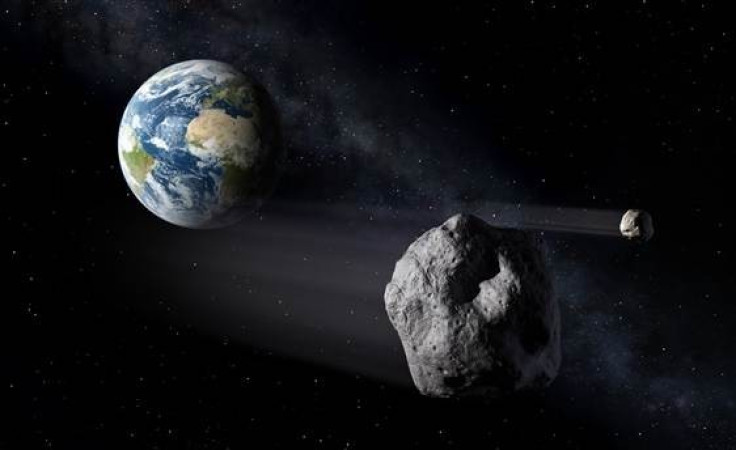Russia to Track Doomsday Asteroid Apophis

Russia is planning to install a tracking beacon on Apophis, an asteroid that has a 1 in 45,000 chance of colliding with Earth in 2036.
The space agency Roscosmo plans to put a radio beacon on the 300-metre-wide asteroid to assess its risk to our planet.
Apophis first came to global attention in 2004, when Nasa scientists said it was potentially hazardous. At the time, Nasa said the rock had a 2.7 percent chance of hitting Earth in April 2029.
Later measurements found there was no impact risk in 2029 but the asteroid would pass at a historically close distance of 29,470km.
Nasa found that the asteroid may still pose a risk for 2036, when Apophis orbits the earth again. Its proximity to Earth in 2029 could amplify its trajectory prediction, scientists warned.
The impact risk for 2036 stands at 1 in 45,000, they speculated.
Roscosmo said it would be able to make new measurements on the asteroid in 2013 to get a more accurate reading of its predicted course.
Vladimir Popovkin, head of Roscosmo, announced the plan for a tracking beacon at the Space Research Institute in Moscow.
"[The plan is] to land a module on the surface of Apophis and set up a radio beacon there, which will work after the spaceship's lifetime expires," he said.
The mission will not be launched before 2020.
Asteroids are generally small rocky bodies orbiting the sun. They hold scientific interest because they are relatively unchanged debris from the solar system formation process, which occurred around 4.6 billion years ago.
© Copyright IBTimes 2024. All rights reserved.






